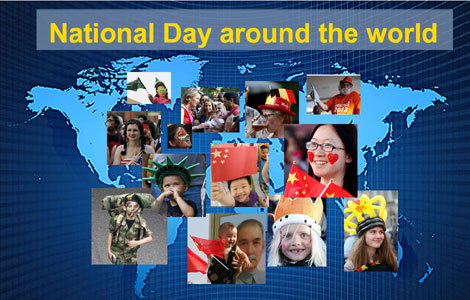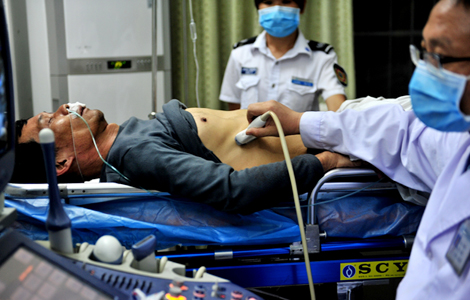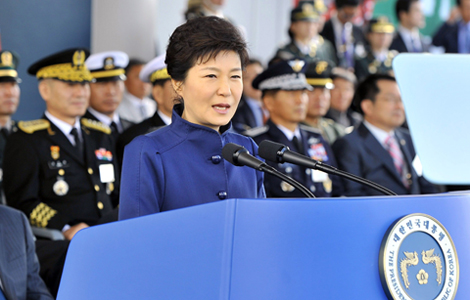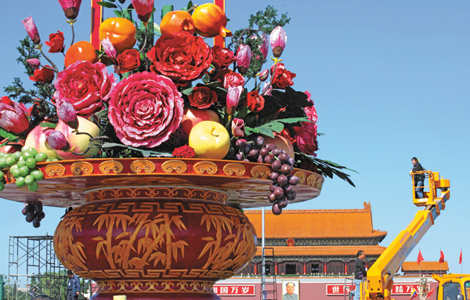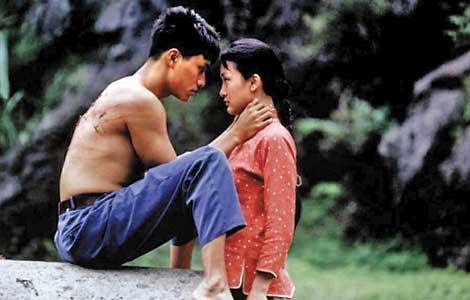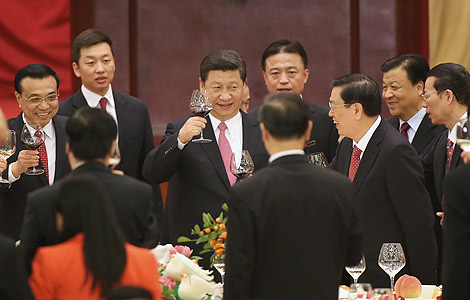Pentagon reassures China over India ties
Updated: 2013-10-01 10:25
By Chen Weihua in Washington (China Daily)
|
||||||||
As the US seeks to bolster its defense ties with India, a senior Pentagon official sought to defuse concerns that the move, part of the US rebalancing towards Asia-Pacific strategy, is aimed at China.
Deputy Secretary of Defense Ashton Carter said he is asked all the time if the US rebalance really is about China or aimed at China. "No, it's not about China," he told a seminar on Monday at the Center for American Progress in Washington DC. "It's about ensuring the peace and stability that the Asia-Pacific has enjoyed for over 60 years and ensuring that it continues."
Carter said the US is committed to working closely with its Chinese counterparts to maintain a robust agenda of military-to-military engagement.
"We also seek to strengthen and grow our military-to-military relationship with China, which matches and follows our growing political and economic relationship with China," he said.
"We are encouraged to see increased Chinese involvement in multilateral military exercises in the region, to include the US Pacific Command's next Rim of the Pacific, or RIMPAC, exercise, which the Chinese are going to participate in," said Carter.
Bilateral military exchanges between China and the US have warmed up in the past two years with more visits by high-level military leaders and joint exercises in anti-piracy, search and rescue and humanitarian missions.
US laws still bar bilateral military cooperation that is deemed to be helping the Chinese military's combat capabilities.
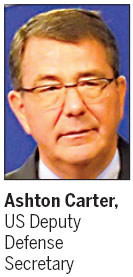
Last Friday, defense cooperation between the US and India was a prominent issue when President Barack Obama met Indian Prime Minister Manmohan Singh in Washington. Carter led the Pentagon's efforts to expand and deepen the US-Indian defense partnership.
Carter, who just returned last week from a trip to India, Pakistan and Afghanistan, said on Monday that the US and India are destined to be partners on the world stage.
In a joint statement last Friday, Obama and Singh reaffirmed their desire to further strengthen defense cooperation by endorsing a Joint Declaration on Defense Cooperation as a means of enhancing their partnership in defense technology transfer, joint research, co-development and co-production.
Obama also encouraged the further participation of US firms in partnering India's efforts to enhance its defense capacities, according to the statement.
The two countries now conduct frequent joint military exercises. And since 2008, the Indian government has bought more than $8 billion worth of US military goods.
Caroline Wadhams, a senior fellow at the Center for American Progress and Aarthi Gunasekaran, a research assistant at the center, said the US sees India as a key partner in South Asia's stability and in advancing common security goals related to combating terrorism, piracy, and nuclear proliferation, supporting Afghanistan's stability and in providing a counterweight to China.
"Therefore, the United States has committed to supporting India's efforts to modernize its military and in fast tracking defense acquisitions for India," the two wrote last Wednesday in a paper, which was also distributed among audience on Monday.
"US companies such as Lockheed Martin, Boeing, and Raytheon are seeking to expand business in India as the nation plans to upgrade its Cold War-era military equipment, becoming the world's top arms buyer with a plan to spend $100 billion over the next 10 years," wrote Wadhams and Gunasekaran.
In a recent trip to India, Carter proposed that the US and India partner in five co-production projects, including the MH-60 Romeo multi-role helicopter, the Javelin missile and a naval gun.
Some analysts both in and outside China have interpreted such a US move, part of the US rebalance strategy, as a way to rally China's neighbors around the US in a bid to counterbalance the growing Chinese economic, political and military influence in the region.
And that includes India, which, despite its growing trade ties with China, has an insufficient strategic and security trust with its neighbor to the north.
Hugh White, a professor of strategic studies at the Australian National University, pointed out that American policymakers since the 1990s have looked to India as a counterweight to China.
"They hope that as India's power grows, it will augment American power to offset China's rise and help preserve the US-led order," White wrote in his latest book The China Choice: Why We Should Share Power.
White believes the relationship is not in any sense an alliance. "As India grows stronger, its interests are likely to diverge further and further from America's, especially if America's aim is to maintain primacy in Asia."
chenweihua@chinadailyusa.com
(China Daily USA 10/01/2013 page1)
Most Viewed
Editor's Picks

|

|

|

|

|

|
Today's Top News
Beijing to issue air pollution warnings
US government partial shutdown begins
Pentagon reassures China over India ties
China committed to deepening reform
Chinese embassy in Syria attacked
Trending news across China
New FTZ gets a big US bank
China, India join hands on border stability
US Weekly

|

|
